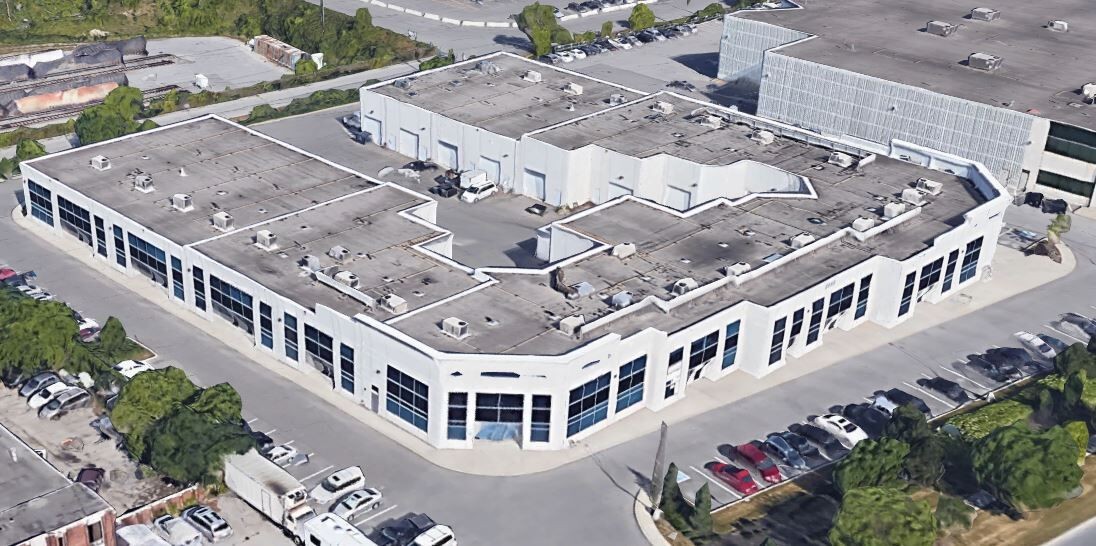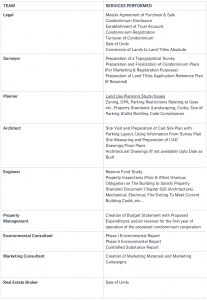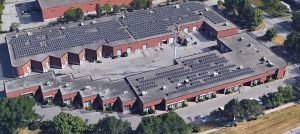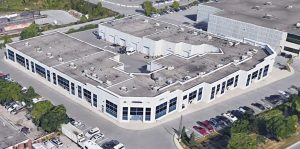
Capitalizing on alternative approaches in a low-yield market…
Last week we discussed the merits of converting multi-tenant industrial buildings to condominiums, while also examining a couple of case studies and recent industrial condo conversion activity.
We established why, given the current environment, it may be a strategy worth looking at as there are parties on both sides of the transaction who can benefit from it for different reasons. This doesn’t mean that it’s the only option available to owners or investors; it’s just a tool in the toolbox. If you missed out on that issue, please go back and give it a read before continuing.
This week we will further dive into the opportunity itself, potential benefits, and more importantly, look at what it takes to get it done on a more granular level.
Specifically, we’ll look at:
- the team required,
- the hard and soft costs involved,
- the conversion process itself, and
- possible challenges you may face along the way.
So let’s begin…
Opportunity
As mentioned, there is a great opportunity to create value by such a conversion; which is based on the following factors:
- Great demand from users to own their own space
- Very low supply of units available to purchase
- Historically low interest rates
- Significant upside in value between what users are paying vs. Investment Value based on CAP rates
Benefits
The benefits of the conversion process vs. new condominium projects are based on:
- Quicker closing
- Potential Buyers are already occupying the building
- More options for future disposition of units that are subject to existing leases
- Water, Storm, and Sanitary allocation existing
- Existing cash flow in place coming from rentals
- Higher disposition value vs. rental buildings
- Excellent locations in Mature Neighbourhoods
Condominium Conversion Team and Services Performed
In order to bring the industrial condominium conversion process to successful completion, the following (dream) team of consultants should be assembled:
Costs Involved
Overall, there are soft costs and hard costs involved in the condominium conversion process.
Soft costs include: Legal Costs, Surveying, Planning Studies, and fees to Real Estate Brokers, Consulting Engineers, Environmental Engineers, etc…
Hard costs include: Repairs and Replacements of Mechanical, Electrical, HVAC, Painting, Cleaning, Roof, Paving, Landscaping, etc…
The Condominium Conversion Process
Project Conception and Due Diligence
It is always better to carefully consider in advance what you can and will do, to study the lands and your options as fully as possible, so that once instructions are given, applications are made and marketing commences, the project will change as little as possible. Measure twice, and cut once, as the old saying goes.
With a conversion from rental to condominium ownership, a site plan application is usually required to address site issues and ensure conformity with current policy. Therefore, it is advisable to complete a Site Plan Application together with a Plan of Condominium Application. In some cases, a Minor Variance Application may also be required to address any deficiencies on the site.
In any event, a condominium production meeting between the property owner and all team members/consultants should take place to strategize and plan for the development/conversion and coordinate specifics of the project.
The following work plan is recommended to achieve the property owners objectives:
- Investigate and confirm all planning policies applicable to the subject property including provincial policies, City of Toronto Official Plan, In-force and appealed Zoning statures and any other relevant Secondary or tertiary plans;
- Review Site Plan application and Plan of Condominium application requirements;
- Arrange for and attend a pre-consultation meeting with City staff;
- Prepare and submit a STAR submission for City review and receive comments; and
- Conduct a meeting with the local Councillor.
Preparation and Submission of Site Plan and Plan of Condominium Applications
The following tasks will be completed in this phase:
- Obtain a new property survey and undertake a zoning analysis of the site;
- Request a Zoning review (PPR) by City staff to ensure compliance;
- Coordinate with the surveyor for the preparation of a draft plan of condominium;
- Assist property owner in the retention of the required team members/sub-consultants
- Schedule and attend one pre-submission meeting with the City;
- Prepare materials for submission: application forms and cover letter including planning justification report;
- Coordinate all sub-consultants in the preparation of the required plans and reports;
- Coordinate the submission of the applications and the required support material.
Application Monitoring
The work program for this phase includes:
- Monitoring circulation of applications to municipal departments and external agencies;
- Facilitating responses to comments and questions from agencies;
- Reviewing comments and responses;
- Identify solutions, negotiate and resolve issues which may arise from municipal departments and external agencies;
- Attend and make representation at the various public and Council meetings;
- Facilitate a final submission of the required reports, plans, and studies;
- Monitor appeal period.
Preparation of Condominium and Disclosure Documents
A Declaration and a Description, By-Laws and Rules and Regulations are required in order to create a condominium.
The declaration sets out all of the rules of operation, occupancy, and use of the property, and defines such details as:
- the proportionate interests of each future unit owner,
- their proportionate shares in the costs of the condominium, and
- whether there are any parts of the common elements to which a unit owner is entitled to have exclusive use.
The description is a set of survey plans that delineate the perimeter boundaries of the project and the internal divisions between units and common elements.
Both the draft declaration and description must be submitted to the Land Titles Office where the condominium is to be registered for review prior to registration.
The Act requires the developer of a condominium to provide purchasers with a number of disclosure documents and a proposed budget for the first year of operation of the condominium. The project solicitor will prepare all such documentation while the condominium property manager prepares the first-year budget.
Once the purchaser receives all the Condominium and Disclosure Documents in addition to a fully executed agreement of purchase and sale, there is a 10-day “cooling-off” period during which the agreement can be rescinded. A further rescission period may arise if you thereafter make material changes to the disclosure materials.
Completion of Declaration
The main body of the declaration must be signed by a developer before the condominium can be registered. In addition, a number of schedules need to be signed by various parties including the project solicitor, surveyor, engineer, architect, as well as all the mortgagees must sign consent forms, if applicable. The project solicitor or planner usually coordinates the completion of declaration schedules.
Clearance of Draft Plan of Condominium Approval Conditions
After circulation of the application for approval of the draft plan of condominium, the municipal approval authority issues conditions of approval that must be cleared.
Once everything has been done to satisfy the conditions, the municipal approval authority will be presented with the final condominium plans (description) for execution, along with a letter that specifies how each condition was met; and includes copies of relevant clearance letters, other documentation, and the approval authority fee.
When satisfied that all conditions have been duly met, the approval authority will sign off on the final copies of the plan and deliver the same to the Land Titles Office to be registered. Copies of the declaration are also delivered directly to the Land Titles Office directly by your solicitors or surveyors, along with applicable registration fees.
When the declaration and description are registered, the condominium comes into existence. Within a further short period (anywhere from one to a few days) the Land Titles Office will open PINs for each of the units, allowing the titles to them to be conveyed.
Land Titles Application
Hopefully, the lands are already in the Land Titles Absolute ownership and conversion from an older land registration system is not required. If one is required, the process can take several months, and will usually involve both Project Surveyor and Project Solicitor. However, to save time, it can be done at the same time as the draft plan application and other steps are being performed. In the event that neighbours object to the conversion of title for any reason, this process may be delayed.
Potential Challenges in the Condominium Conversion Process
Below are a few challenges that may arise throughout the process.
- Municipal Approval – Official approval for conversion may not be granted
- Planning – Site Plan Approval and Minor Variance may be required
- Construction – Code compliance, sprinklers and fireproofing, servicing, may need upgrades
- Environmental – Remediation might be required
- Legal – Existing leases might be preventing efficient disposition
- Miscellaneous – Architectural drawings, survey, and site plan may not exist
Conclusion
It is obvious that there is a potential significant lift in value when converting existing multi-tenant industrial buildings into industrial condos.
However, like anything else, you need to know what you are doing and be aware of a number of pitfalls and potential challenges so that you can address them and deal with them successfully.
Further, by surrounding yourself with the best possible team of consultants that understand the process and its nuances, you will be able to get to your desired end result on time and on budget.
Disclaimer: If something like this interests you, please take this as educational and informational; as a way to show what’s possible and provoke thought and discussion. If you are considering an industrial condo conversion, please consult the appropriate professionals or give us a call to see if we can help.
Until next week….
Goran Brelih and his team have been servicing Investors and Occupiers of Industrial properties in Toronto Central and Toronto North markets for the past 25 years.
Goran Brelih is a Senior Vice President for Cushman & Wakefield ULC in the Greater Toronto Area.
Over the past 27 years, he has been involved in the lease or sale of approximately 25.7 million square feet of industrial space, valued in excess of $1.6 billion dollars while averaging between 40 and 50 transactions per year and achieving the highest level of sales, from the President’s Round Table to Top Ten in GTA and the National Top Ten.
Goran is currently serving as Immediate Past President of the SIOR ‐ Society of Industrial and Office Realtors, Central Canadian Chapter and on the Board of Directors of Muki Baum Accessibility Centre, a Toronto‐based NGO which provides support to children and adults with complex disabilities.
Specialties:
Industrial Real Estate Sales and Leasing, Investment Sales, Design-Build and Land Development
About Cushman & Wakefield ULC.
Cushman & Wakefield is a leading global real estate services firm that delivers exceptional value by putting ideas into action for real estate occupiers and owners. Cushman & Wakefield is among the largest real estate services firms with 48,000 employees in approximately 400 offices and 70 countries.
In 2017, the firm had revenue of $6.9 billion across core services of property, facilities and project management, leasing, capital markets, advisory, and other services. To learn more, visit www.cushmanwakefield.com or follow @CushWake on Twitter.
For more information on GTA Industrial Real Estate Market or to discuss how they can assist you with your real estate needs please contact Goran at 416-756-5456, email at goran.brelih@cushwake.com, or visit www.goranbrelih.com.





